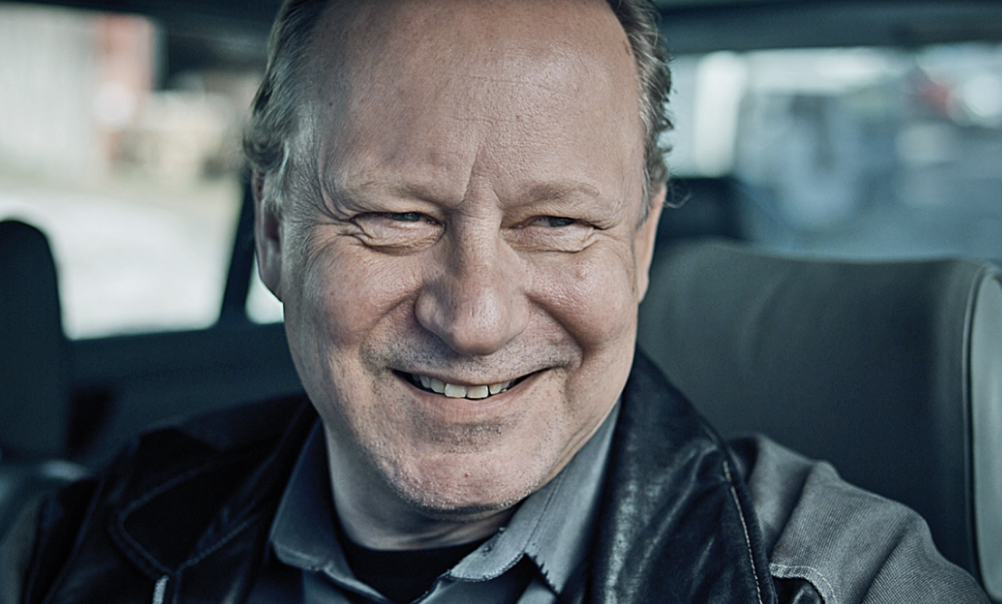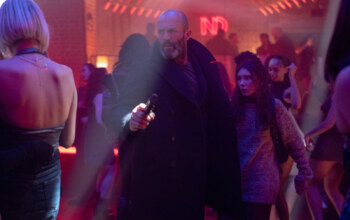Return to Montauk (Rückkehr nach Montauk): An interview with actor Stellan Skarsgård

Swedish actor Stellan Skarsgård is perhaps best known to international audiences for his role as Dr Erik Selvig in the Marvel cinematic universe movies, appearing in both Thor films, and The Avengers and its sequel. But this is just a fraction of his work since his 1972 debut. He brings his new film, the wordy and wistful Return to Montauk to Berlinale. Directed by Oscar winner Volker Schlöndorff, Skarsgård plays Max Zorn, an improbably named writer who visits New York on a book tour. While contemplating the period when he lived in the city, he decides to track down an old flame who was quite possibly the love of his life. We spoke with Stellan at this year’s Berlin International Film Festival.
You’ve presented films at Berlinale on quite a few different occasions. How is the festival treating you this year?
Oh, the usual. I was talking to a journalist earlier who said, So it’s time for the yearly Stellan Skarsgård interview, with a tired voice. But no, it’s always so nice to come here.
Return to Montauk is such a literary piece. Is it difficult to play such a talky role, where so much relies on the dialogue?
It was very difficult, because it goes against my principles. I think words work well on stage, but in film you should avoid dialogue as much as possible and see what you can do between the lines instead. This film starts with a five minute monologue, and I said to Volker, this could be the most expensive audio book ever, and he laughed. But on one hand, I know that producers would be afraid to touch this material because there’s so much literature. But on the other hand, people listen to audio books for hours, and it doesn’t hurt if there’s an image there as well, just as long as you don’t spoil the image by trying to illustrate it or something. But as an actor it was really difficult to do the first reading. What you had to do was do it as if you were reading it from the book, so the rhythm and everything is decided by the writing, and not by your emotions. You cannot illustrate, you can’t put a lot of feeling into it, you just have to say it and let the words do the work. That makes it very hard to learn, because if it was a normal monologue it would come out of emotions; I remember this, I was so sad about that, or whatever. But you couldn’t do that, so I had big problems learning it. But it was important because you had to not cut any of the language. Colm Tóibin’s wonderful language is such a big part of the film, so you had to find a way to bring it to life. Partly by leaving it alone, and partly by giving it a subtle and beautiful life. But you also have to make the audience believe that these people talk that way. I mean, it’s written, and nobody really talks like that.
Max Zorn has somewhat of a wistful personality, always wanting to examine his past. Can you identify with this?
No, but I’m a very different person to both Volker and Max Zorn. I know a lot of people who go back and ask what did I do wrong, why am I not happy, and so on. I am happy, so I don’t have to do that. But I know I’ve hurt people, I’ve made mistakes in my life, and make a note and I file it, and I go on. I have the same relationship to the past as I do with the future. I don’t deal with it, because I live in the present. But if you’re unhappy, you can do that. It’s a semi-philosophical but literally very beautiful thought.
Did not feeling all that comfortable with the character make him more interesting to play?
I don’t feel comfortable playing anything. I find it extremely painful every time, but I really try to find things that I haven’t done before, and especially finding films that haven’t been made before, and this is really hard. Most of the scripts you see, you say, OK, I’ve seen that, and I’ve seen that, and I’ve seen that. They might change the clothes or the professions of the characters, but it’s the same f**king film again and again. Lars Von Trier said something interesting to me the other day. He said, “Oh Stellan, I know what kinds of films I’m doing now.” And I said, OK, so what kind is it? He told me he was doing the missing films. He wants to do the films that are missing in the history of cinema. And I think that’s really good. Modest as always!
Oliver Johnston
Read our review of Return to Montauk (Rückkehr nach Montauk) here.
For further information about the 67th Berlin Film Festival visit here.
Read more reviews from the festival here.



























Facebook
Twitter
Instagram
YouTube
RSS